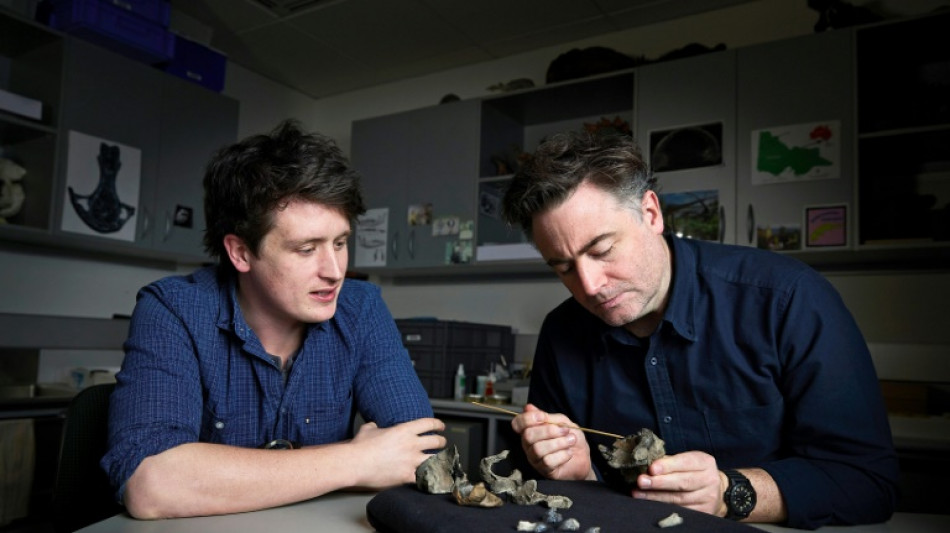
Scientists unearth 'cute' but fearsome ancient whale

Australian scientists have discovered a razor-toothed whale that prowled the seas 26 million years ago, saying Wednesday the species was "deceptively cute" but a fearsome predator.
Museums Victoria pieced together the species from an unusually well-preserved skull fossil found on Victoria's Surf Coast in 2019.
Scientists discovered a "fast, sharp-toothed predator" that would have been about the size of a dolphin.
"It's essentially a little whale with big eyes and a mouth full of sharp, slicing teeth," said researcher Ruairidh Duncan.
"Imagine the shark-like version of a baleen whale -- small and deceptively cute, but definitely not harmless."
The skull belonged to a group of prehistoric whales known as the mammalodontids, distant smaller relatives of today's filter-feeding whales.
It is the fourth mammalodontid species ever discovered, Museums Victoria said.
"This fossil opens a window into how ancient whales grew and changed, and how evolution shaped their bodies as they adapted to life in the sea," said palaeontologist Erich Fitzgerald, who co-authored the study.
Victoria's Surf Coast lies on the Jan Juc Formation -- a geological feature dating to the Oligocene epoch between 23 and 30 million years ago.
A string of rare fossils have been unearthed along the scenic stretch of beach, a renowned site for the study of early whale evolution.
"This region was once a cradle for some of the most unusual whales in history, and we're only just beginning to uncover their stories," said Fitzgerald.
"We're entering a new phase of discovery.
"This region is rewriting the story of how whales came to rule the oceans, with some surprising plot twists."
The species was named Janjucetus dullardi, a nod to local Ross Dullard who stumbled across the skull while strolling the beach in 2019.
It was described in the peer-reviewed Zoological Journal of the Linnean Society.
M.Vacanti--INP

 London
London

 Manchester
Manchester
 Glasgow
Glasgow
 Dublin
Dublin
 Belfast
Belfast
 Washington
Washington
 Denver
Denver
 Atlanta
Atlanta
 Dallas
Dallas
 Houston Texas
Houston Texas
 New Orleans
New Orleans
 El Paso
El Paso
 Phoenix
Phoenix
 Los Angeles
Los Angeles



